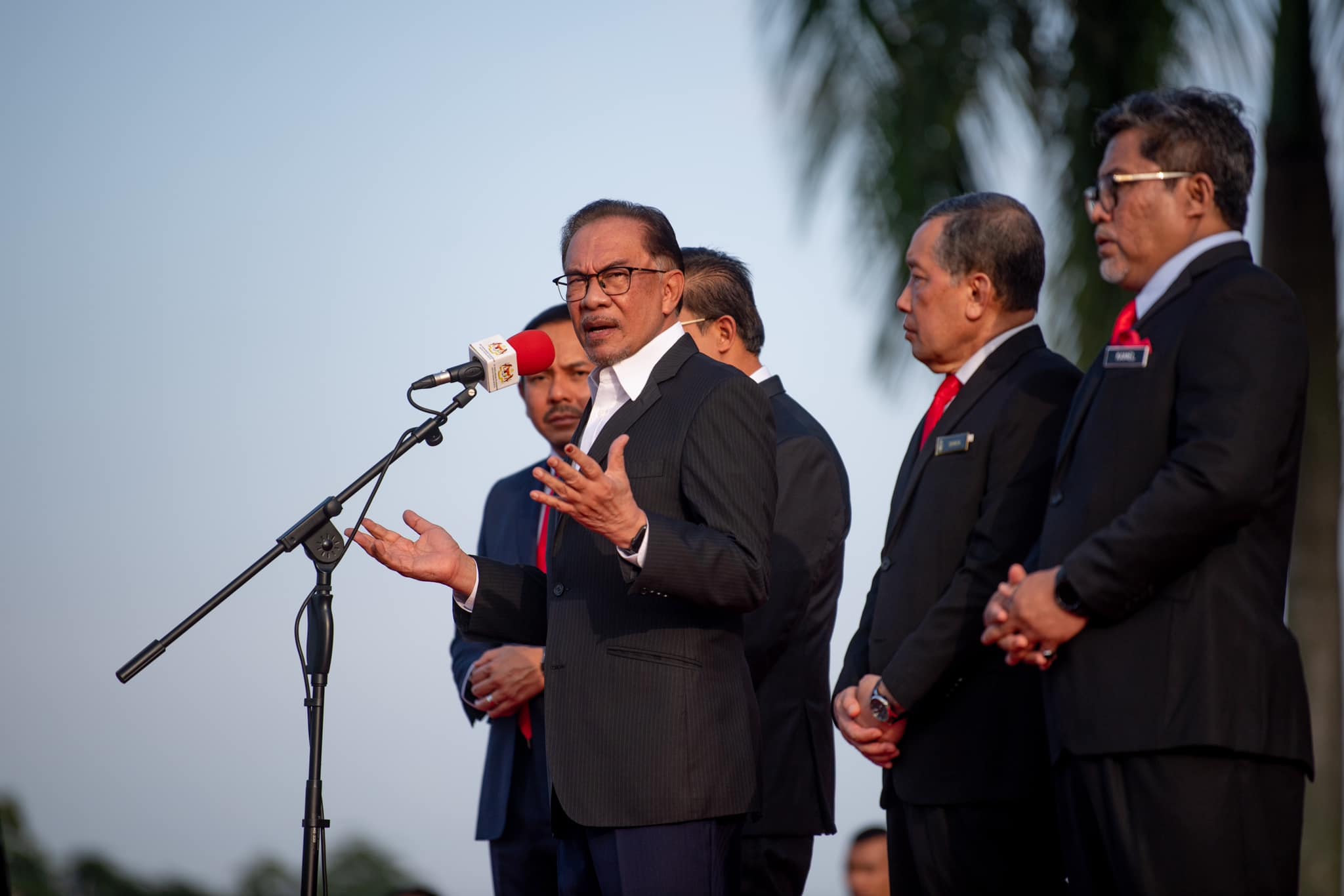Anwar's Economic Policies Under Scrutiny: Critics Highlight Lack of Specificity
An amalgamation of criticisms has been directed at Anwar's economic strategies. A noteworthy concern is the dearth of specificity, coupled with a predilection for market-oriented approaches.

Caption: Anwar is expected to simplify his policies and show results to garner support in a sorely divided nation - Photo: Anwar Ibrahin Facebook
Critics have expressed worries over a purported lack of precision in Anwar's economic blueprints. His pledge to address the challenges posed by the cost of living and promote a development process that is devoid of corruption and that is socially inclusive is deemed to be inadequately fleshed out. Detractors argue that this deficiency in specificity obstructs the ability to scrutinize Anwar's policies and to hold the administration accountable for its promises.
For instance, skeptics contend that the administration has not delineated a comprehensive strategy to handle Malaysia's substantial debt load—an issue that resonates with numerous citizens. Additionally, criticism has been directed at the vague nature surrounding the creation of employment opportunities and the stimulation of economic growth.
Scrutinising the economic policy
Moreover, critics have voiced reservations about the administration's apparent lack of clarity in addressing the disparities in income and the advancement of social welfare. This shortfall in specificity has given rise to concerns that the economic policies may not be all-encompassing enough and might fall short in meeting the diverse needs of various segments of society.
The effectiveness of Anwar's governance in Malaysia seems to be diminishing, a perception attributed to a variety of factors. Particularly noteworthy is the heightened support for the opposition, headed by Tan Sri Muhyiddin Yassin, which has the potential to erode the stability of the existing government. As a result, Anwar's precarious hold on a the majority presents challenges in the execution of policies and the maintenance of political stability.
Furthermore, the administration faces the formidable challenge of appeasing multiple factions, creating hurdles in the path to effective governance. Concurrently, Anwar's leadership contends with economic vulnerabilities, encompassing a fragile export sector, mounting food costs, and a weakened national currency. These vulnerabilities extend beyond the economic realm, hindering the administration's ability to effectively tackle these issues.
More criticism
An amalgamation of criticisms has been directed at Anwar's economic strategies. A noteworthy concern is the dearth of specificity, coupled with a predilection for market-oriented approaches. Doubts have been raised about the administration's ability to manage inflation and the rising costs of living, further magnifying skepticism surrounding these policies.
The absence of precision within Anwar's economic approaches has elicited censure, with critics underscoring the lack of intricate plans beyond his commitment to mitigating the burden of escalating living expenses and advancing an all-encompassing, corruption-free development. This vagueness, according to detractors, hampers the scrutiny of Anwar's policies and hinders the administration's accountability for its commitments.
For instance, critics argue that the administration's inability to outline a comprehensive strategy to address Malaysia's substantial debt is glaring—a concern that resonates widely among citizens. Additionally, the administration's indistinct stance on the creation of employment opportunities and the stimulation of economic growth has drawn criticism.
The perceived paucity of clarity in addressing income disparities and advancing social welfare has also generated contention. This lack of specificity has sparked concerns that the economic policies might inadequately cater to the diverse needs of various societal segments.
Market driven
Anwar's emphasis on market-driven approaches, which critics argue disproportionately favor foreign direct investment and infrastructure expenditure, has further exacerbated the situation. This, they assert, neglects the concerns of everyday citizens, who might not reap equitable benefits from such policies.
Despite Anwar's assurance of addressing the mounting costs of living, doubts persist about the administration's competence in effectively managing inflation and the day-to-day expenses of the populace.
Anwar's initiatives concerning government-linked investment entities are being scrutinized as potential catalysts for substantial economic reform under the new administration. However, detractors express dissatisfaction with what they perceive as insufficient efforts to foster meaningful economic transformation.
In conclusion, the deficiency of specificity in Anwar's economic policies emerges as a significant critique, casting shadows over the assessment of their effectiveness and the administration's responsibility for its commitments.
